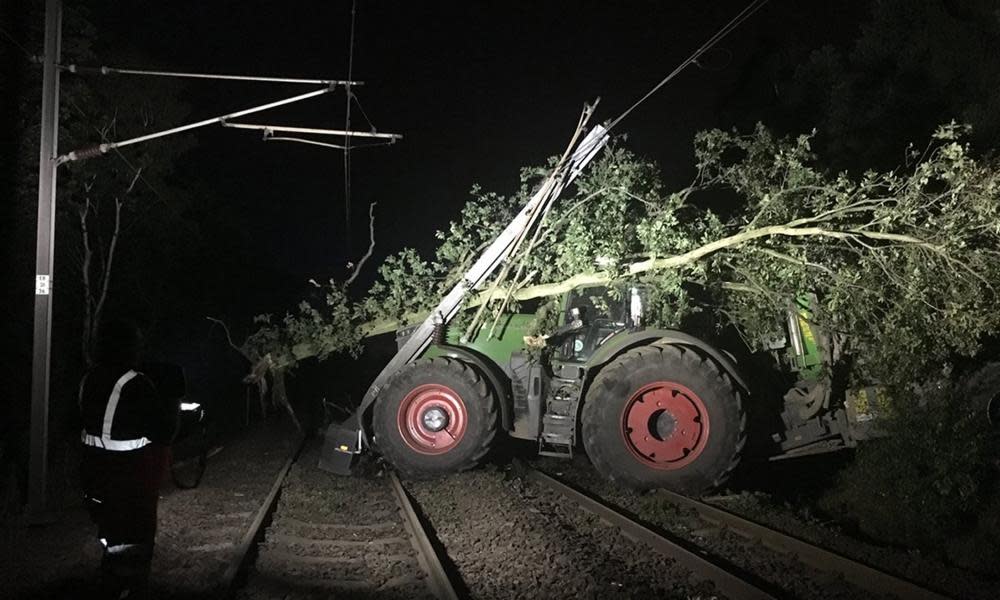Tractor on line stops train services in Yorkshire

Rail travellers faced major disruption after a tractor damaged a track and overhead wires in West Yorkshire.
The incident in Fitzwilliam, between Wakefield and Doncaster, on Wednesday led to all lines being blocked. Firefighters and a specialist recovery service removed the tractor from the line but National Rail Enquiries said repair work was taking place and services were unlikely to resume fully until 6pm on Thursday.
The vehicle went on to the railway on Wednesday night. London North Eastern Railway (LNER) said the vehicle had “broken the field boundary from a nearby farm and caused the damage”.
Northern services between Leeds and Doncaster were suspended while its trains between Leeds and Sheffield were only running between Moorthorpe and Sheffield. It said disruption was expected until 4.15pm.
CrossCountry and East Midlands trains were not stopping at Wakefield Westgate and LNER trains between Leeds and Doncaster were being diverted to start or terminate in York.
More damage to overhead wires in Alexandra Palace and Finsbury Park in north London on Wednesday evening meant many southern commuters also faced delays on Thursday.
The lines reopened, but Great Northern and Thameslink passengers on some services were told they could face cancellations and delays of up to 30 minutes until midday.
The disruption came as the chief executive of the Rail Delivery Group, which represents train operators and Network Rail, said the operation and regulation of Britain’s railways must be “fundamentally overhauled”.
Writing in the Times (paywall), Paul Plummer said it was understandable that Wednesday’s announcement that the cost of season tickets would go up by 3.2% in January was met with dismay, but defended the role of the private sector.
He suggested the creation of an arm’s-length body to work with the industry to implement government strategy, and greater devolution of decision-making to the regions.
“The private sector, working with the public sector, has a vital role to play in delivering a better railway and, in the right conditions, can inspire a new generation of innovation, investment and, crucially, unity,” he said. “But that requires the way we run and regulate our railways to be fundamentally overhauled.”
Plummer said the government should make long-term strategic decisions but not get involved in detail, as it would stifle innovation.
“Long-term decision-making must be insulated from short-term political fixes,” he wrote. “And we need clear accountability and leadership. This could mean a new arm’s-length body to work with the rail industry to implement a strategic vision set by government.
“Elsewhere, the benefits of an integrated transport system must be realised through greater devolution. Long-term decisions made locally, not in Westminster. Devolution has worked well in Merseyside, Scotland and London. Why not the north and the south-west too?”
The botched introduction of a new timetable in May led to thousands of trains being cancelled, particularly across Govia Thameslink Railway and Arriva Rail North networks.
The disruption led to the government vetoing further timetable changes expected in December, which meant upgrades in areas such as the West Midlands, the west of England and on South Western Railway routes were cancelled or delayed indefinitely.

 Yahoo News
Yahoo News 
